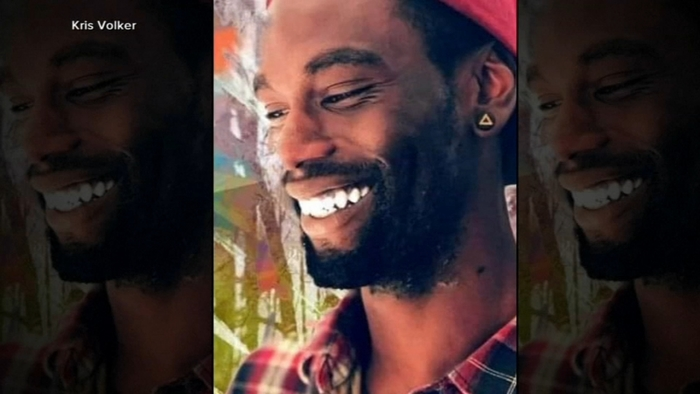What Kind of Ancestors Do We Want to Be?
by Elizabeth V. Hallett
As a member of the progressive movement since the 1960’s, the nature of US cultures of violence and nonviolence have always been a theme for me. Always, I search to see where resolution, reconciliation and healing can occur – and where it cannot.
The legacy of violence began really with the formation of our country, and I wish we could find ways to heal the mindset that justifies the violence, institutional or individual that surfaces. Be it when another victim is offered up by twisted representatives of the State, by vigilantes or by mentally unbalanced individuals.
By now, I bring my own decades of historical observation and personal sorrow to the altar of each press conference, each memorial, each witness that imprints us with another story of the violence, injustice, gaslighting and betrayal in the legacy of our broken humanity. As child of the Civil Rights movement since the 60’s, cultures of violence have been theme for me. Always, I search to see where resolution, reconciliation and healing can occur – and where it cannot and why. What really interests me is finding paths toward a culture of peace.
Elizabeth V. Hallett, Author
The world is bearing witness to Memphis, Tennessee, 55 years after the assassination of Martin Luther King, as yet another black family mourns the loss of a son, a brother, a father, at the hands of police violence. The perpetrators, who began with a traffic stop, escalated their power over Tyre Nichols in the guise of the Street Crimes Operation to Restore Peace in Our Neighborhoods, or SCORPION police task force. The police actors played out an Orwellian scene of the exact opposite nature from their supposed assignment that included tazing, kicking, beating and pepper spraying the supposed offender of “reckless driving.”
The first news Tyre Nichol’s mother got of her son’s death, was delivered to her door by officers from the Memphis Police Department. It was filled with inaccuracies and lies, characterizing Tyre’s behavior and the situation in ways that would later be disproven, based upon compiled videos and drone surveillance footage.
The released police videos show no evidence of reckless driving thus far. Other claims by the officers that Tyre Nichols was aggressive and noncompliant with their orders remain unsubstantiated. To the contrary, he complied with their orders. This 29 year-old Black man, known as a peaceful individual in his community, was a father who loved sunsets, photography, skateboarding and daily meals with his family. He was on his way home when stopped at a traffic light. He was essentially brutalized to death, unable to survive after three days of hospitalization.
The memorial for Tyre Nichols was held February 1, 2023, in Memphis, Tennessee. The events represent the most recent immersive experience that illuminates both the horror and the redeeming aspects in the struggle for social justice. And, in some discord of harmony, the event marked the beginning of February as Black History Month – which should not stand alone but be recognized every month.
A Legacy of Civil Rights
Another public funeral that called for justice action was that of Emmett Till in 1955, after the Black 14-year-old was lynched in Mississippi. Many say it catalyzed the U.S. civil rights movement.
In the shadow of Mamie Till-Mobley’s grief for her son, Emmett, Tyre’s mother stood at a press conference last week with Civil Rights attorney Benjamin Crump along with others. To their right was an enlarged photo of Tyre seen as vibrant, well-dressed and happy. To their left was a disturbing photograph of Tyre’s bruised, swollen face as he lay in the hospital just before death. As with Emmett Till’s mother, Tyre’s mother wanted us to see the damage done to her precious son. This was possibly the only act of resistance to the violence apart from demanding swift prosecution and justice.
“I have not even had time to grieve,” said RowVaugn Wells, as she faced the microphones with her husband at the press conference. Her family has been catapulted into the well of grief known by way too many families due to police violence.
The first news Tyree’s mother got of her son’s death was delivered to her door by officers from the Memphis Police Department. It was filled with inaccuracies and lies, characterizing Tyre’s behavior and the situation in ways that would later be disproven, based upon compiled videos and drone surveillance footage.
Layers of Assault
The first assault was Tyre’s death. The second was the attempt to distort, whitewash and cover up the truth of how Tyre died and at whose hands. Then third was the revelation that the officers involved were Black, which takes our understanding of institutional violence to a whole new level. The fourth insult is the way that the family’s grief and the crime itself have had to be processed in public, while facing the depth of their loss. These assaults are part of an unending stream of wrongful deaths of Black people in the United States perpetrated by law enforcement.
The next indignity is that Black mothers, fathers, siblings and friends are inextricably caught in a swirl, trying to grieve privately while being called upon to find the courage to demand justice in public. This family, like so many others, must now process the sickening horror and anger they feel in real time, while finding ways to honor their loved one and voicing a call for justice to the world.
The tragic victimization of Tyre Nichols is compounded by their new and painful membership as part of all the families who are suffering the indelible trauma and scars from other murders. And so, this week, at Tyre’s memorial we saw the presence of the families of George Floyd, Breonna Taylor, Botheem Jean, Eric Garner and Jelum Randal – all from different areas of the United States; all of whom have lost a family member to police violence.
Both sadly and fortunately within our culture, there is an enormous, well-organized community of and, ministers and social justice activists serving as a moral compass across the nation.
The spiritual leaders who show up for beleaguered communities pierced by these tragedies bear witness to generations of disfigurement, assassinations and murders that have been visited upon the innocent. These reach back to the killing of Dr. Martin Luther King Jr. in 1968 at the Lorraine Motel in Memphis, not far from where Tyre was beaten, leading to his death.
Homegoing Celebrations
Memorials become a container for the shock, anger, disgust, outrage, determination and ultimate dignity with which the African American culture must wrangle something positive out of such horrifying events. Tyre Nichols family leaned upon the pleas for nonviolence not unlike that by Robert Kennedy when MLK was assassinated. And unlike some similar cases, it seems to have generally held in cities including L.A., Chicago, San Francisco among others.
The spiritual communities and the culture of nonviolence seeded by pastors including Dr. King leaned on faith. There is a belief in forgiveness and a view that when one of our own dies this way, it can be seen as a sacrifice that will redeem the bloody deeds and allow justice to prevail. In this vein, RowVaughn Wells calls upon her belief that her son was on this earth for a larger reason. She states that this redemptive belief that it “is all that makes me able to go on.”
And so the “Homegoing Celebrations” for the dead, attended by social justice pastors including, in this case, eulogist Rev. Al Sharpton, work to pull us from sorrow and despondency into action for more social change. He was very young when Dr. King was assassinated. An organizer at the forefront of movements for police reform and accountability, Al Sharpton offered the main eulogy at Tyre Wilson’s Memorial.
“The Rev.” walks now in the legacy King and others stitched together, as do the other featured speakers at the Homegoing Service. They included Rev. W. Franklin Richardson of the Conference of National Black Churches for Policy and Social Justice; and famed civil rights leader Rev. William Barber III of Center for Public Theology and Public Policy at Yale Divinity School.
Attorney Benjamin Crump, who has been the foremost lawyer in cases including those of George Floyd and Breonna Taylor spoke, vowing to fight for justice of this latest victim of police brutality. He noted that the arrest of the perpetrators only took twenty days for swift action, likely because the officers involved were all Black. He attributed this to an overarching culture of violence that must be changed. Seeing that swift action is possible, Crump said he will insist on 20 day, “no delay” investigations as a blueprint for future cases. He will not tolerate excuses for drawn out investigations that have obscured other cases.
The deepest well of comfort at the Mississippi Boulevard Christian Church may have come from the Memphis Celebration Choir, who performed the song “A Change is Gonna Come.”
The hundreds in attendance at Tyree’s memorial included faith leaders, elected officials, activists, attorneys, family and friends. They offered a multi-layered response of historic and cultural dimensions of trauma as well as resiliency. Along with the intergenerational sorrow, came the declamation and renewed commitment to the struggle. With the celebration of Tyre as a whole person came the reminder that songs of comfort and hope can weave us into a fabric that can envision moving forward as one, with determination.
The most politically urgent call came from Vice President Kamala Harris, who urged immediate passage of the George Floyd Justice Policing Act. “President Biden will sign it!” she insisted.
Witnessing with Righteous Anger
To see the facets of community come together to mourn, comfort and demand justice is to see layers and layers of historical witness. In 2023, methods to organize, grieve, comfort and stand together in pursuit of justice are seen in the expression of righteous anger and determination – a spiritual recommitment to dismantle the culture of racism and violence so prevalent in the United States today.
The Homegoing Celebration was a stunning and moving sacred witness, not only to the love Tyre Nichols spread in his short life, but to the vibrancy of the civil rights community.
The celebration of Tyre Nichol’s life included a commitment to a national examination of police violence and the profound need for change. Body cams will not be enough. The actions they record must reflect safer, more respectful standards of policing.
Here, the legacy of so many leaders in the civil rights movement over generations leads us to ask, “Where do we go now?”
While this memorial occurred on the first day of Black History Month,- which is actually alive every month – we must face the painful reminder that we have a long way to go to redeem the prophetic arc of justice that Dr. King spoke of years ago.
Along with the pain and scars, we must also celebrate the unique aspects of expression and spirituality that make up Black history and function as a creative tapestry in places all across the United States. The story that can be so deeply painful has been carried along by profound intelligence, collective strength and beauty.


